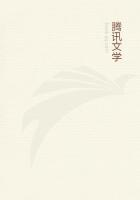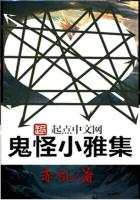Religion has not only universal thought as inward content implicite contained in its myths, ideas, imaginations and in its exact and positive histories, so that we require first of all to dig this content out of such myths in the form of theorems, but it often has its content explicite in the form of thought. In the Persian and Indian Religions very deep, sublime and speculative thoughts are even expressed. Indeed, in Religion we even meet philosophies directly expressed, as in the Philosophy of the Fathers. The scholastic Philosophy really was Theology; there is found in it a union or, if you will, a mixture of Theology and Philosophy which may very well puzzle us. The question which confronts us on the one side is, how Philosophy differs from Theology, as the science of Religion, or from Religion as consciousness? And then, in how far have we in the history of Philosophy to take account of what pertains to Religion? For the reply to this last question three aspects have again to be dealt with; first of all the mythical and historical aspect of Religion and its relation to Philosophy; in the second place the theorems and speculative thoughts directly expressed in Religion; and in the third place we must speak of Philosophy within Theology.
A. Difference between Philosophy and Religion.
The consideration of the mythical aspect of Religion or the historical and positive side generally, is interesting, because from it the difference in respect of form will show in what this content is antagonistic to Philosophy. Indeed, taken in its connections, its difference passes into apparent inconsistency. This diversity is not only found in our contemplation but forms a very definite element in history. It is required by Philosophy that it should justify its beginning and its manner of knowledge, and Philosophy has thus placed itself in opposition to Religion. On the other hand Philosophy is combated and condemned by Religion and by the Churches. The Greek popular religion indeed, proscribed several philosophers; but the opposition is even more apparent in the Christian Church. The question is thus not only whether regard is to be paid to Religion in the history of Philosophy, for it has been the case that Philosophy has paid attention to Religion, and the latter to the former. Since neither of the two has allowed the other to rest undisturbed, we are not permitted to do so either. Of their relations, therefore, we must speak definitely, openly and honestly - aborder la question, as the French say. We must not hesitate, as if such a discussion were too delicate, nor try to help ourselves out by beating about the bush; nor must we seek to find evasions or shifts, so that in the end no one can tell what we mean. We must not seem to wish to leave Religion alone. This is nothing else than to appear to wish to conceal the fact that Philosophy has directed its efforts against Religion. Religion, that is, the theologians, are indeed the cause of this; they ignore Philosophy, but only in order that they may not be contradicted in their arbitrary reasoning.
It may appear as if Religion demanded that man should abstain from thinking of universal matters and Philosophy because they are merely worldly wisdom and represent human operations. Human reason is here opposed to the divine. Men are, indeed, well accustomed to a distinction between divine teaching and laws and human power and inventions, such that under the latter everything is comprehended which in its manifestation proceeds from the consciousness, the intelligence or the will of mankind which makes all this opposed to the knowledge of God and to things rendered divine by divine revelation. But the depreciation of what is human expressed by this opposition is then driven further still, inasmuch as while it implies the further view that man is certainly called upon to admire the wisdom of God in Nature, and that the grain, the mountains, the cedars of Lebanon in all their glory, the song of the birds in the bough, the superior skill and the domestic instincts of animals are all magnified as being the work of God, it also implies that the wisdom, goodness and justice of God is, indeed, pointed out in human affairs, but not so much in the disposition or laws of man or in actions performed voluntarily and in the ordinary progress of the world, as in human destiny, that is, in that which is external and even arbitrary in relation to knowledge and free-will. Thus what is external and accidental is regarded as emphatically the work of God, and what has its root in will and conscience, as the work of man. The harmony between outward relations, circumstances and events and the general aims of man is certainly something of a higher kind, but this is the case only for the reason that this harmony is considered with respect to ends which are human and not natural such as those present in the life of a sparrow which finds its food. But if the summit of everything is found in this, that God rules over Nature, what then is free-will? Does He not rule over what is spiritual, or rather since He himself is spiritual, in what is spiritual? and is not the ruler over or in the spiritual region higher than a ruler over or in Nature? But is that admiration of God as revealed in natural things as such, in trees and animals as opposed to what is human, far removed from the religion of the ancient Egyptians, which derived its knowledge of what is divine from the ibis, or from cats and dogs? or does it differ from the deplorable condition of the ancient and the modern Indians, who held and still hold cows and apes in reverence, and are scrupulously concerned for the maintenance and nourishment of these animals, while they allow men to suffer hunger; who would commit a crime by removing the pangs of starvation through their slaughter or even by partaking of their food?















